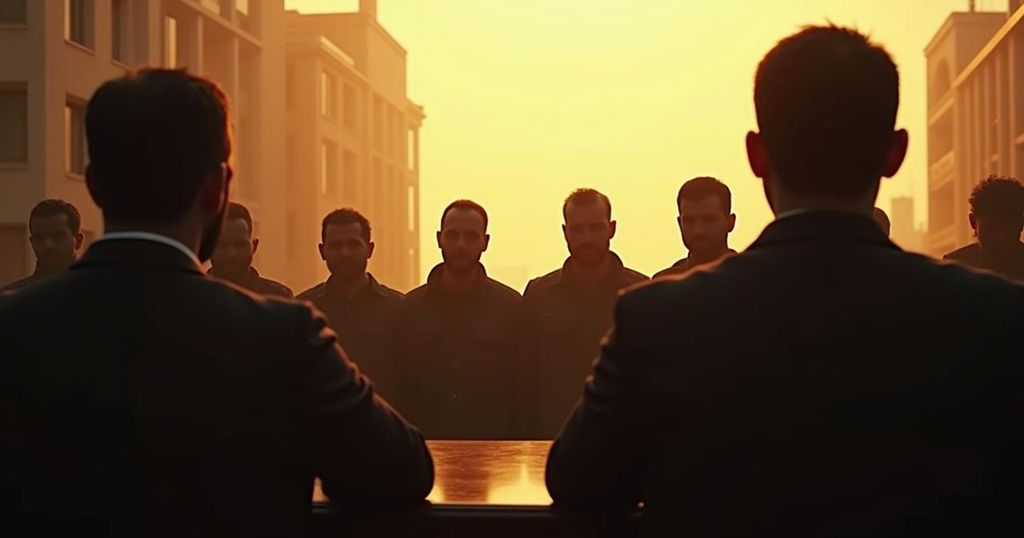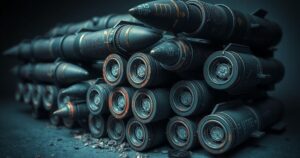Hezbollah’s Leadership Decimated: Seven High-Ranking Officials Assassinated in Israeli Strikes

In over a week of intensified Israeli military strikes, seven prominent Hezbollah leaders, including Hassan Nasrallah, have been killed, marking a significant escalation in the conflict. These losses pose a critical challenge for Hezbollah, as they attempt to consolidate their leadership and assess the ramifications within the broader regional conflict with Israel.
In a span of just over one week, substantial Israeli military operations in Lebanon have resulted in the deaths of seven prominent commanders within Hezbollah, a powerful militant group known for its significant influence in the region. The fatalities included Hassan Nasrallah, the group’s leader, alongside other key officials, which has sent shockwaves through Lebanon and the broader Middle Eastern landscape. This unprecedented series of strikes marks a new and serious escalation in the ongoing conflict between Israel and Hezbollah, particularly following Hezbollah’s decision to support Hamas amid the latter’s recent offensive into southern Israel. Hezbollah, which emerged in the early 1980s during the Lebanese Civil War, has played an intricate role in several regional conflicts and has developed into Lebanon’s most influential military entity. The leadership loss is particularly poignant for a group that has been critical in various confrontations with Israel for decades. The assassination of Nasrallah is a transformative event in the militant group’s history, as he has been at the helm since 1992, guiding its transition from a militant organization to a significant political player in Lebanon. Among the killed were other notable figures: Nabil Kaouk, deputy head of Hezbollah’s Central Council; Ibrahim Akil, leader of the elite Radwan Forces; Ahmad Wehbe, another commander in Radwan Forces; Ali Karaki, who headed the southern front; Mohammad Surour, head of the drone unit; and Ibrahim Kobeissi, who directed the missile unit and was linked to past conflicts involving Israeli soldiers. This group of assassinations is an evident demonstration of Israel’s advanced intelligence capabilities and its commitment to undermining Hezbollah’s operational leadership. In the aftermath of their deaths, tensions escalate as Hezbollah seeks to recuperate from the significant leadership vacuum. Naim Kassem, Nasrallah’s deputy, emerges as the highest-ranking official still alive, alongside Hashim Safieddine, who is considered a potential successor. The remaining command structure appears targeted, with renewed fears over further Israeli operations against key figures within the organization.
The recent military actions taken by Israel against Hezbollah are rooted in longstanding tensions, particularly following Hezbollah’s material support for Hamas. The group has garnered international notoriety for its military operations against Israel and has been implicated in various escalations throughout the Middle East. The leadership of Hezbollah, particularly Nasrallah’s, has been fundamental to its strategies which integrate military actions with political engagements in Lebanon and the broader Shiite community across the region. The roles played by these commanders were pivotal in establishing Hezbollah’s approach in various conflicts, notably in Syria, where the group supported President Bashar Assad’s regime amid a spiraling civil war. Their deaths, particularly in the context of Israeli airstrikes, signal a notable shift in the regional power dynamics and could redefine the operational capabilities of Hezbollah.
The assassination of seven high-ranking Hezbollah officials, including the prominent leader Hassan Nasrallah, represents a critical juncture in the ongoing conflict between Israel and Hezbollah. This situation has resulted in significant military and political repercussions for Hezbollah as it faces the loss of longstanding and influential leaders. As the organization navigates this extraordinary challenge, the international community watches closely to see how these events will influence the conflict dynamics in the Middle East.
Original Source: www.nbcphiladelphia.com





